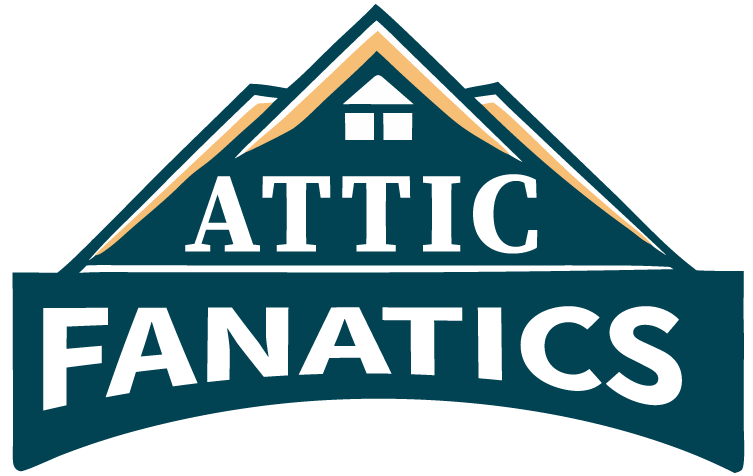Can Attic Insulation Reduce Noise?
Unwanted noise can significantly impact comfort and well-being, especially in homes located in noisy environments. Whether it’s traffic, neighbors, or other external sounds, many homeowners seek effective solutions to reduce these disturbances. One such solution is attic insulation. But can it actually help to soundproof your home? The short answer is yes. In this article, we’ll explore how attic insulation contributes to noise reduction and why it’s an often-overlooked solution for improving home acoustics.How Does Attic Insulation Impact Soundproofing?
Attic insulation is primarily designed to regulate temperature and improve energy efficiency, but it also offers considerable noise-reducing benefits. The materials used for insulation, such as fiberglass, cellulose, and spray foam, absorb sound waves rather than reflecting them. By absorbing these sound waves, insulation reduces the amount of noise that travels through the walls, ceilings, and floors of your home.The Science Behind Soundproofing and Insulation Materials
Sound travels through air as vibrations, and when it reaches a solid surface, it can either pass through or be absorbed. The effectiveness of attic insulation in soundproofing depends on the material’s density and ability to absorb sound.- Fiberglass Insulation: Fiberglass insulation is one of the most commonly used materials for both thermal and acoustic insulation. Its porous nature helps to trap sound waves, preventing them from passing through walls and ceilings. It’s especially effective at muffling airborne sounds like voices or traffic noise, making it a great option for reducing noise.
- Cellulose Insulation: Made from recycled paper, cellulose insulation is denser and more effective at soundproofing compared to fiberglass. It fills gaps and voids, making it an excellent choice for reducing noise transmission between rooms or floors.
- Spray Foam Insulation: Spray foam insulation is known for its air-sealing properties, but it also offers impressive soundproofing capabilities. It expands upon application, filling even the smallest cracks and gaps, preventing sound from traveling through.
What Types of Noise Can Attic Insulation Help Block?
Attic insulation is effective at reducing various types of noise, both from external sources and within the home. Here’s how it addresses different noise concerns:- External Noise:
- Traffic Noise: Homes located near busy streets or highways often suffer from constant traffic noise. Proper attic insulation can significantly reduce the amount of external noise entering through the roof and upper floors.
- Aircraft and Train Noise: Similarly, for homes near airports or train tracks, attic insulation helps absorb these high-frequency noises that can be disruptive.
- Internal Noise:
- Footsteps: In multi-story homes or apartments, footsteps from upper floors can be a major disturbance. Insulating the attic can help absorb and minimize the sound of footsteps, creating a quieter living space.
- Conversations and Electronics: Noise from televisions, radios, or conversations in adjacent rooms can also be muffled by attic insulation, providing more privacy and a peaceful environment.
Benefits of Combining Attic Insulation with Other Soundproofing Methods
While attic insulation alone can provide substantial noise reduction, combining it with other soundproofing methods can enhance its effectiveness.- Use of Acoustic Panels: Adding acoustic panels to walls and ceilings can work in tandem with attic insulation to further reduce noise. These panels are designed to absorb sound, creating a more soundproof environment when used alongside proper insulation.
- Sealing Gaps and Cracks: Insulating the attic can be a part of a broader soundproofing strategy. Sealing gaps in windows, doors, and walls can prevent sound from entering or escaping, creating a fully soundproof barrier.
- Soundproof Flooring: For homes with a lot of foot traffic, soundproof flooring materials can complement attic insulation, ensuring minimal sound transmission between floors.
Limitations of Attic Insulation for Soundproofing
While attic insulation can significantly reduce noise, it’s important to recognize its limitations. Insulation alone may not completely eliminate all types of noise, especially low-frequency sounds such as bass from music or thumping noises. For these types of sounds, additional soundproofing methods, like mass-loaded vinyl or resilient channels, may be necessary to achieve the desired level of sound isolation.Cost Considerations for Soundproofing with Attic Insulation
The cost of installing attic insulation for noise reduction can vary based on the material used, the size of the attic, and the existing insulation in place. While fiberglass and cellulose are generally affordable, spray foam insulation can be more expensive but offers superior air sealing and soundproofing properties.However, considering the long-term benefits of reduced noise pollution and improved home comfort, attic insulation is often a cost-effective soundproofing solution that provides both acoustic and thermal advantages.Is Attic Insulation Worth the Investment?
For homeowners experiencing noise-related disturbances, investing in attic insulation can significantly improve quality of life. Not only will it help reduce external and internal noise, but it will also enhance energy efficiency, leading to lower utility bills. By addressing both comfort and noise concerns, attic insulation offers an all-in-one solution that provides lasting benefits.Attic insulation can effectively contribute to noise reduction by absorbing sound waves and preventing them from traveling through walls and ceilings. When combined with other soundproofing strategies, it can provide a quieter, more peaceful living environment. Whether you’re dealing with noisy neighbors, traffic, or internal noise, adding insulation to your attic is a worthwhile consideration for any homeowner looking to improve acoustics and comfort in their home.Ari Licht
Ari Licht is the Founder and CEO of Attic Fanatics USA, a Florida-based company specializing in advanced attic inspections and energy-efficiency upgrades. Drawing on his background in real estate and his Miami upbringing with Israeli, Ukrainian, and Moldovan roots, Ari brings a practical, people-first approach to business. Over the past five years, he’s built a reputation for honest service, technical precision, and customized insulation, ventilation, and HVAC solutions that actually work—without the fluff.










